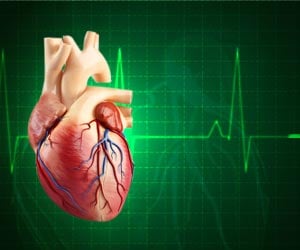Therapeutic hypothermia is also effective on patients with `nonshockable' rhythms when there is no pulse and the patient is in a coma.

‘Survivors of cardiac arrest who remain in comas have better survival and neurological outcomes when their body temperatures are lowered. Physicians employ cooling wraps to drop the patients' temperature from approximately 37 degrees Celsius to 33 degrees Celsius (91.4 degrees F). It reduces damage to the brain following a cardiac arrest.’





Dr. Perman, an assistant professor of emergency medicine at the University of Colorado School of Medicine, said, "Prior to our study, there was minimal data to support the use of this treatment on patients with nonshockable rhythms. As a result, the therapy was not widely used with these patients." Dr. Perman, a clinical expert in cardiac arrest and post-arrest care, and her colleagues looked at data from 519 patients who had nonshockable heart rhythms between 2000 and 2013. They found those who received therapeutic hypothermia were 2.8 times as likely to survive to be discharged from the hospital and 3.5 times more likely to have better neurological outcomes - returning to their baseline mental state - than those who did not have the treatment.
Physicians who use the technique employ cooling wraps to drop the patients' temperature from approximately 37 degrees Celsius to 33 degrees Celsius (91.4 degrees F). The therapy has shown to reduce damage to the brain following a cardiac arrest, though scientists continue to investigate why this occurs.
Landmark trials in 2002 studying shockable patients found 49 percent of those who received therapeutic hypothermia had good neurological outcomes as opposed to 26% who did not receive the treatment. Another trial showed 55% of patients with good neurological outcome against 39% who didn't have the therapy.
Dr. Perman said, "Neurologic injury after cardiac arrest is devastating. We have one chance to give some form of neuroprotection, and that's immediately after the arrest. Therapeutic hypothermia should be more widely used in comatose patients to protect neurological function. We know that patients benefit from this therapy. The importance of delivering meaningful research from the laboratory directly to the patient. Therefore, one of our next challenges is to tailor the hypothermia treatment to the patient's specific injury in order to improve outcomes further."
Advertisement
Source-Eurekalert















